Opinion
Is #EndSARS Nigeria’s Tipping Point?
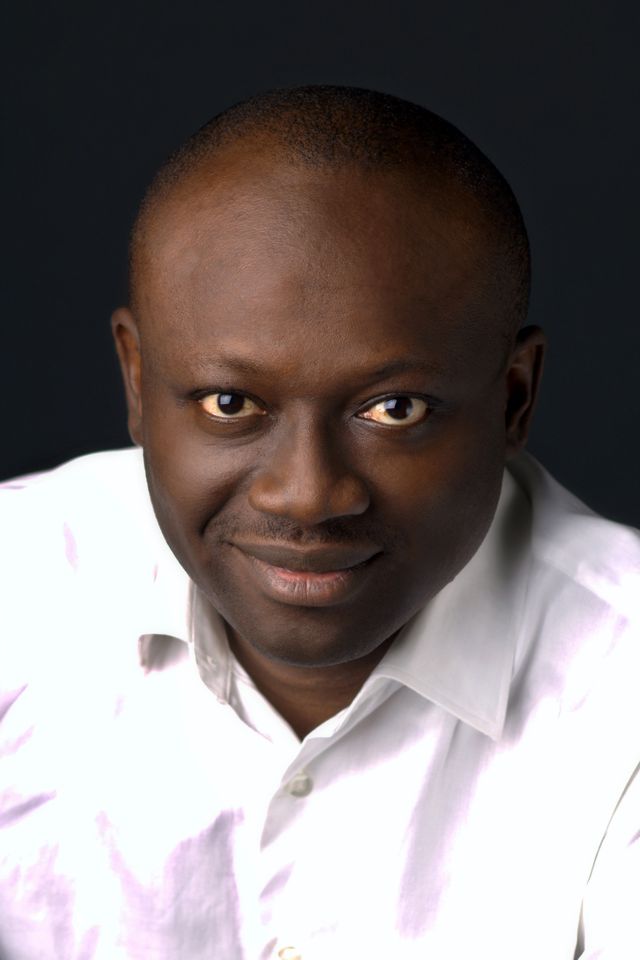
By SimonKolawole
The youth uprising against police brutality in Nigeria has taken many by surprise. Conventional wisdom is that the youth are more likely to dance at a concert than sing a protest song. Events of the last couple of weeks have altered this narrative as youthful Nigerians have taken to the streets in a vigorous campaign to shoot down police brutality, with the notoriety of the special anti-robbery squad (SARS) serving as the trigger — no pun intended. With the help of the hash tag, #EndSARS, the agitations have gained international attention. And the government has seen that this is not business as usual. Are we finally at the tipping point in the battle for the soul of Nigeria?
While the protests have, in the main, been about police brutality, interpreting them purely as such would be a massive mistake. We would be making a mistake if we focus on the fact that other interests, especially political, have seized the opportunity to fuel the fire. We would be erring by looking only at the disruptions being created all over by protesters who have refused to yield an inch despite their demands being met by the government. We would be missing the point if we focus too much on the fact that even the yahoo boys are eager to see the end of SARS, which itself grooms and harbours a legion of police officers that are yahoo boys and robbers by nature.
For sure, every struggle has its own opportunists. All kinds of characters will jump on the bandwagon to pursue their own agenda. That’s the way life goes. We have to look beyond that. My reading of the real situation is that there is something deeper going on out there. Deeper than SARS. Deeper than SWAT. Deeper than police brutality. What we have in our hands is the unloading of pent-up anger, frustration and resentment by Nigerians — with the youth leading the line. The SARS situation is what Yoruba would describe as “ara ran bombu l’owo” — that is… now I don’t know how to interpret that. Let me just say: “A thunder strike has helped detonate a bomb.”
In 1988, when I was a student of Kwara State Polytechnic where I studied for my A’Levels, we hardly had water at our residential halls. We queued up with our buckets every morning and every evening for water supply by tankers. Then one evening, guys played football. The tankers did not show up. How would they go to bed sweaty and smelly? A few of them started beating their buckets, singing “aluta” songs over water scarcity and poor welfare. Before we knew it, it had progressed to a protest march across the campus. And then a full-blown riot. Overnight, some of us trekked 10 kilometres to Ilorin town, afraid that soldiers would soon invade the campus and start shooting.
You would find it hard thinking a simple football game would lead to a bloody riot in a matter of minutes. In fact, if you were the cynical type, you would argue that the students were unserious, that they were in school to study and not to play football, and that it was the unserious students that caused the riot in order to be sent home. But you would be missing the point. Students were already frustrated. Nobody was paying attention. The anger was building up. The authorities did not see it. The resentment had reached a peak. They ignored it. It took a meaningless football match to fan the flame into an inferno. That is what happens when you fail to read the writing on the wall.
Let’s now return to #EndSARS. For decades, Nigerians have been complaining about police brutality. For decades, the Nigerian state has turned a blind eye, despite panels upon panels set up and recommendations upon recommendations made. As Professor Jibrin Ibrahim, respected political scientist and newspaper columnist, pointed out, all presidents since 1999 have set up one panel or the other on police reform. The reports are gathering dust on Aso Rock shelves. Meanwhile, the police have been gleefully stockpiling dead bodies, cocksure that there would be no consequences. SARS went on robbing and killing with impunity. Is the day of reckoning finally here?
But SARS apart, youth frustration has been building up. We asked them to go to school. They did. Write WASSCE. They did. Write UMTE. They did. Go to university. They did. Do national youth service. They did. Yet years later, they are still begging to apply for vacancies that do not exist, vacancies reserved for the children of the high and mighty. There are those that keep writing entrance exams but are unable to proceed because of lack of space or funds. There are those that never went to school, and those that dropped out in primary or secondary school. Millions are underemployed, unemployed or unemployable. What a huge army of frustrated youth.
But in the same country, if you manage to get elected into a state house of assembly, you will get a brand new SUV, currently sold at N50 million per machine. In some states, there are 40 lawmakers. That is N2 billion. Judges will wake up one day to realise the governor has just bought “tear-rubber” SUVs for them. Governors ride long convoys with the most modern bullet-proof technology. In the same society, hospitals are rejecting patients because “there is no bed space”. People are struggling to pay rising bus fares but their leaders can afford to charter jets to attend weddings and rallies. The youth see all these things. This is a society built on injustice and inequality. And we want peace?
Poverty, unemployment and inequality are the biggest triggers for uprising in any society. Some young persons taking to yahoo, drug dealing and armed robbery are products of a system that does not reckon with the implications of unemployment and poverty. An idle hand, it is said, is tempting the devil. No human being will sit at home and die of hunger. Self-preservation is a basic human instinct. If it is to steal, beg or borrow, the human being will strive to survive. Let me be clear: I am NOT justifying crime. However, a wise society will make a connection between unemployment, poverty and crime, and act decisively to address the problems at the root.
For decades, we have been asking the government to make the economic environment less hostile to businesses, especially small and medium scale enterprises, so that they will be able to create jobs for the millions of skilled and unskilled Nigerians. For decades, we have been putting up with the dissonance — government, on one hand, claiming they are trying to improve the ease of doing business; and government agencies, on the other hand, continuously terrorising SMEs with extortionate levies and taxes in a mad revenue drive, using task forces loaded with thugs and police officers to make the business environment unbearable for the engine room of the economy.
For inexplicable reasons, the government —whether federal, state or local — cannot understand the link between policy and prosperity. They think by making life difficult for businesses and their owners, the economy will grow and create the jobs needed to address the unemployment, poverty and inequality ravaging the nation. Does that make sense? For instance, if you run a business in Abuja, right under the nose of the federal government, the ministries, departments and agencies will violently come after you in such a way that you would think you are a Boko Haram member. Serious countries are encouraging SMEs. We are killing them. And we want to tackle unemployment.
In FCT, at least three units of the Abuja Municipal Council Area (AMAC) do “health inspection” on an eatery every year. You pay a levy for each visit. NAFDAC, NSTIF and SON will also do the same “health inspection” for a fee. There is an annual licence for “operating in FCT”. There is a levy for “using a car to distribute food”. You will be forced to pay Federal Housing Authority (FHA) and AMAC again for “fumigation”. There is also the AMAC “sanitary inspection” fee. AMAC’s department of environment charges for yearly inspection. There is yet another AMAC fee for “food and water-related handling”. That is how we want to encourage economic growth and create jobs in Nigeria!
In all, the #EndSARS protesters need to have an articulated game plan. They must have an end game in mind. At what stage do they sheathe the sword and seize this golden opportunity to begin to hold leaders at all levels accountable as a movement? No government official, whether elected or appointed, should sleep at ease again. What are the lawmakers doing with the constituency projects? Why are the roads so bad? Why are the hospitals and schools in such horrible state? Why are government officials chartering jets to attend political rallies? How are the budgets spent? These questions should shape the next stage of agitation, which should be peaceful and orderly.
If #EndSARS is going to be Nigeria’s tipping point — the point at which pockets of protests and agitations will trigger a major, sustained clamour for good governance — there is a need for strategic articulation, with an end game in mind. This is a lifetime opportunity for the youth to channel their anger, frustration and resentment into positive energy to bring about a fundamental change in Nigeria. The biggest gain should not be just to enforce an end to police brutality and impunity. Those are just symptoms of the chronic mismanagement of Nigeria. After #EndSARS, we need to end the biggest obstacle to our progress: appalling leadership at all tiers of government.
-Email: [email protected]
-sms: 08055001961
Opinion
Tinubu’s Buharization of NNPC By Farooq Kperogi
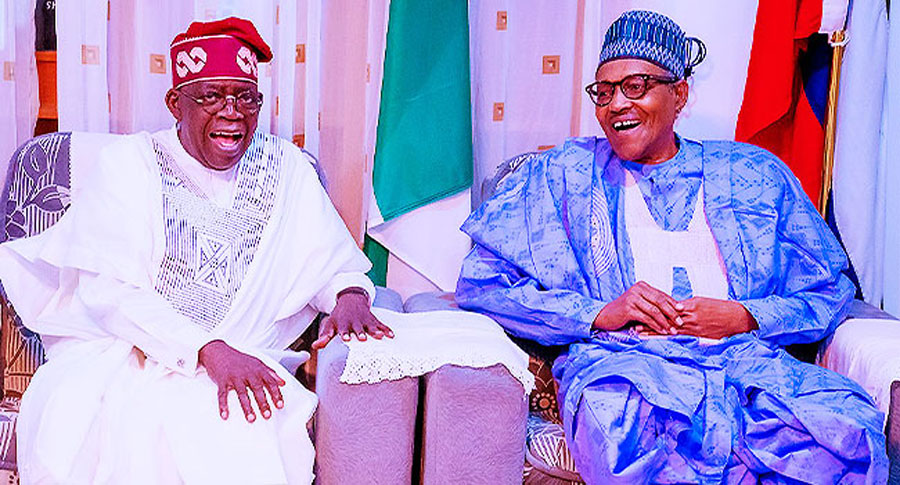
Tinubu’s Buharization of NNPC by Farooq Kperogi
After the sustained, unwarranted personal attacks I endured for eight years from northerners for unswervingly calling out what I called the “embarrassingly undisguised Arewacentricity of Buhari’s appointments” in a February 2, 2019, column titled “Even Ahmadu Bello Would Be Ashamed of Buhari’s Arewacentricity,” I promised that I would look the other way if a southern president returned the favor after Buhari’s tenure.
But promises made in the heat of disillusionment often crumble under the weight of principle.
Ironically, this column was inspired by a well-regarded Yoruba supporter of President Bola Ahmed Tinubu who is worried, in fact embarrassed, by the optics of what he says is Tinubu’s relentless Yorubacentric take-over of the Nigerian National Petroleum Company (NNPC).
His concern wasn’t just partisan discomfort; it was a profound unease about how this nepotistic approach undermines national cohesion.
I frankly hadn’t been paying attention to the internal dynamics at the NNPC, but the acquaintance pointed out that Yoruba people now occupy major positions at the NNPC and that a certain (person) is “being proposed as GMD after Mele Kyari’s term expires” early next year.
I haven’t independently confirmed the accuracy of this claim but given the closeness of the source of information to people in the circles of power, it’s probably best to not dismiss this with the wave of the hand.
His concern is that Tinubu, from the Southwest, is already the minister of petroleum. Senator Heineken Lokpobiri, the Minister of State for Petroleum and Chairman of the NNPC, is from the South-South. Chief Pius Akinyelure from the Southwest is NNPC’s Non-Executive Board Chairman.
READ ALSO:
- Lagos Imam to Tinubu: You haven’t disappointed us
- Ronaldo, Vinicius, Yamal win big at 2024 Globe Soccer Awards [Full list of winners]
- Vinicius should have won Ballon d’Or, not Rodri – Ronaldo
The head of the NNPC Upstream Investment Management Services (NUIMS), Mr. Bala Wunti, my acquaintance pointed out, has been replaced by one Seyi Omotowa. Gbenga Komolafe is the chief executive officer of the Nigerian Upstream Petroleum Regulatory Commission (NUPRC), making him the highest-ranking upstream regulator.
“If a Yoruba man were to be the GMD, another Yoruba man is the Chairman, and yet another Yoruba man is the regulator, that’s extreme lopsidedness,” and other parts of Nigeria would be justified to feel uncomfortable, my acquaintance said.
As with issues of this nature, the reality may be more complex that the surface-level impressions that I have been presented with. Of the 12-member non-executive Board of Directors, I counted at least four names that I recognize as northern, and that includes Kyari, the outgoing GMD.
The 7-member Senior Management Team on NNPC’s website has three northerners (if Kyari is included). That seems fair. Plus, Buhari actually appointed many of the Yoruba people in high places at the NNPC. By these metrics, one might argue that there’s a semblance of balance.
However, Tinubu’s broader public image tells a different story. His administration is rapidly cementing a reputation for Yorubacentric provincialism. Like the late Umaru Musa Yar’Adua, who governed Nigeria as if he were still a Katsina governor, Tinubu appears to be governing Nigeria as though he were still the governor of Lagos.
Just like Yar’adua was elected a Nigerian president but operated like a Katsina governor in Abuja, Tinubu is also, so far, a Nigerian president only in name. His mindset is still that of the governor of Lagos.
With a few notable (and in some cases unavoidable) exceptions, Tinubu’s government is largely the re-enactment of his time as the governor of Lagos. It is, for all practical purposes, an unabashed Lagos-centric Yorubacracy.
To be fair, though, with the possible exception of Olusegun Obasanjo’s administration, all civilian regimes since 1999 have been insular ethnocracies.
My source reminded me of a viral social media post I wrote on January 14, 2019, titled “New IGP: Why Progressive Northerners Should be Embarrassed” where I gave four reasons for being insistently censorious of Buhari’s Arewacentric appointments in response to southerners who asked why I was bothered since I was a northern Muslim who was “favored” by such appointments—“favored,” that is, on the emotional and symbolic plane.
READ ALSO:
- Nigeria Customs Service begins 2025 recruitment [How to apply]
- Dangote, Tinubu, Lookman, Badenoch named among 100 most influential Africans in 2024
- Heavy security in Ilesa as ex-Osun deputy gov emerges new Owa-Obokun
I pointed out that I criticized similar such parochial appointments by previous presidents from the South and that it would be hypocritical to look the other way because I was now “favored” by such appointments.
I said people from my region and religion won’t always be in power, and I wanted to be able to stand on a firm moral pedestal when I criticize future presidents who replicate Buhari’s (and previous presidents’) provincialism.
Most importantly, I said, I was personally embarrassed by Buhari’s insularity and that every progressive northerner should be. I described it as the sort of embarrassment you feel when your best friend who thinks highly of your mother visits you in your home and your mother, during a family dinner, gives you a considerably bigger food portion size and choicer pieces of meat than your friend.
“You feel like screaming: ‘Mom, I know you love me, but you’re embarrassing me by showing overt preferential treatment to me in the presence of my friend’,” I wrote.
The Yoruba acquaintance of mine who alerted me to the creeping Yoruba-centric take-over of the NNPC said he was doing so out of a feeling of the same sense of embarrassment that inspired my rage against Buhari’s appointments that favored the North unfairly, especially in the areas of security.
Tinubu is doing in the economy sector what Buhari did in the security sector. The minister of finance, the governor of the central bank, and every other consequential agency in finance is headed by a Yoruba man. I am not sure Nigeria has ever seen this level of extreme, state-sanctioned ethnocentric domination of a critical segment of national life.
Appointing another Yoruba individual as the head of the NNPC would complete what many already perceive as the ethnic capture of Nigeria’s economic nerve center. It would not only cement Tinubu’s image as an insensitive ethnocrat but also exacerbate public discontent and foster deeper divisions in an already polarized nation.
If Tinubu is unaware of this burgeoning perception, he needs to awaken to its reality. Leadership is not just about policies and actions; it’s also about managing optics and inspiring confidence in a nation’s collective identity.
In a September 5, 2015, column titled “Buhari is Losing the Symbolic War,” where I railed against the exclusion of Igbo people in Buhari’s first appointments, I wrote:
“Symbolism isn’t the same thing as substance. Appointing people to governmental positions does nothing to improve anybody’s lot—except, perhaps, the people so appointed and their immediate families.
“Jonathan’s disastrous 5-year presidency couldn’t even bring basic infrastructure like boreholes to his hometown of Otueke, yet his people derive vicarious satisfaction from the fact of his being Nigeria’s former president.
“Human beings are animated by a multiplicity of impulses, including rational and emotional impulses, both of which are legitimate. When we turn on our rational impulses, we may ask: What would appointing an Igbo man as SGF, for instance, do to Igbo people? The answer is ‘nothing.’
“But we are more than rational beings: we are also emotional beings. That’s why people are invested in symbolism. Appointing someone from the southeast or the deep south is merely a symbolic gesture, but it inspires a sense of inclusion in the minds of many people from that region; it serves as a symbolic conduit through which people vicariously connect with the government.”
This cycle of ethnic favoritism must end if Nigeria is to realize its full potential as a nation. To grow and thrive, we need leaders who can transcend the narrow confines of ethnocracy.
We need leadership that embraces diversity and inclusion, not as buzzwords but as guiding principles for governance. Only then can we begin to heal the fractures that divide us and build a nation that serves all its citizens, regardless of ethnicity or region.
Farooq Kperogi is a renowned Nigerian columnist and United States-based Professor of Media Studies.
Tinubu’s Buharization of NNPC by Farooq Kperogi
Opinion
Ademola Lookman showed Davido and Kemi Badenoch that wisdom is not by age – Omokri
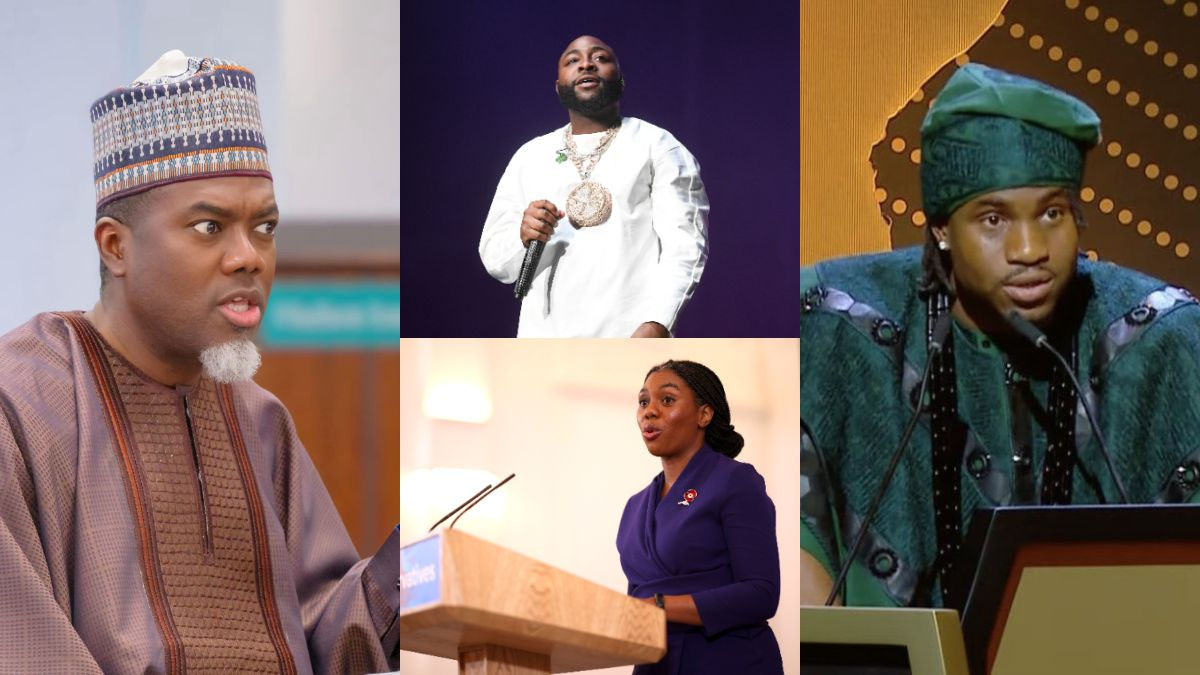
Ademola Lookman showed Davido and Kemi Badenoch that wisdom is not by age – Omokri
Recently, the singer David Adeleke was given a global stage to do whatever he wanted and deliver any message.
Sadly, Mr. Adeleke used the opportunity to speak in an American accent. Not only that, he used that American accent to talk down on Nigeria and tell the world not to invest in Nigeria because, as he put it, Nigeria’s “economy is in shambles”.
Coincidentally, a month after his faux pas, Kemi Badenoch, probably inspired by Davido, used her British accent to talk down Nigeria, calling us “a very poor country” where the police rob citizens.
But the interesting thing about her own case is that the next day, the BBC featured a panel of Conservative Party big shots, and one of them, Albie Amankona, a party chieftain from Chiswick, who is also a celebrity broadcaster, said, and this is a direct quote:
“If you are a Brexiteer, and you are saying we need to be expanding our global trade beyond the European Union, we want to be looking at emerging markets for growth, don’t slag off one of the fastest growing economies in Africa.”
Is it not strange that it took the BBC and a British politician to promote Nigeria as one of the fastest-growing economies in Africa?
And just when we thought it was all bad news, God gave us a breath of fresh air in the youthful Ademola Lookman, who used the global podium granted to him by his winning the 2024 African Footballer of the Year award to promote and project Nigeria and the Lukumi Yoruba language to the world.
READ ALSO:
- MURIC tackles Kemi Badenoch: Can you bring UK police when coming to Nigeria?
- Reps probe $754.2m, N141.6bn tractors, harvesters contract fraud
- Gov Adeleke intervenes in man sentenced to death for stealing fowl (Video)
Wisdom is not by age. If not, Ademola Lookman, who is just twenty-seven, will not have displayed greater wisdom than David Adeleke, who is thirty-two, and Kemi Badenoch, at forty-four.
Mr. Lookman proved that the age of Methuselah has nothing to do with the wisdom of Solomon.
And it is not as though other ethnicities with global icons do not also project Nigeria. They do.
Dr. Mrs. Ngozi Okonjo-Iweala spoke Igbo on the podium of the WTO in Geneva. In terms of prestige, she is FAR above Lookman.
My campaign is not for the Lukumi Yoruba alone. It is for all sub-Saharan Black Africans to learn to speak their language and not use ability to speak English or another colonial language as a measure of intelligence.
Besides Lukumi Yoruba and Hausa, every other Nigerian language, including Fulfulde, is gradually dying out.
General Buhari is half Fulani and half Kanuri. Yet, he cannot speak either Fuifulde or Kanuri. But he speaks Hausa and English.
Fact-check me: In 2012, UNESCO declared Igbo an endangered language.
However, the Lukumi Yoruba are to be commended for their affirmative actions to advance their language and culture.
Let me give you an example. All six Governors of the Southwest bear full Lukumi names: Jide Sanwa-Olu, Seyi Makinde, Dapo Abiodun, Ademola Adeleke, Abiodun Oyebanji, and Orighomisan Aiyedatiwa.
No other zone in Nigeria has all its governors bearing ethnic Nigerian names as first and second names. They either bear Arabic or European names as first names or even first and second names.
If we truly want to be the Giant of Africa, we must take affirmative steps to preserve our language and culture so we can have children like Ademola Lookman.
Teach your language to your children before you teach them English. They will learn English at school. Being multilingual is scientifically proven to boost intelligence.
Fact-check me: In the U.S., Latino kids do not speak English until they start school. They learn Spanish as a first language.
Even if you relocate to the UK, the best you can be is British. You can never be English. And if your choice of Japa is the U.S., the highest you can be is an American citizen. You will never become a White Anglo-Saxon Protestant WASP.
Your power lies in balancing ancient and modern, Western and African, English (or other colonial languages) and your native tongue.
That is the way to reverse language erosion, like the Lukumi Yoruba.
Ademola Lookman showed Davido and Kemi Badenoch that wisdom is not by age – Omokri
Opinion
Kemi Badenoch’s Hate for Nigeria – Femi Fani-Kayode

Kemi Badenoch’s Hate for Nigeria – Femi Fani-Kayode
“I find it interesting that everyone defines me as a Nigerian. I identify less with the country than with my specific ethnic group. I have nothing in common with the people from the north of the country, the Boko Haram, where Islamism is. Being Yoruba is my true identity and I refuse to be lumped with the northern people of Nigeria who were our ethnic enemies, all in the name of being called a Nigerian”- @KemiBadenoch.
Dangerous rhetoric
Kemi Badenoch, MP, the leader of the British Conservative Party and Opposition in the @UKParliament, has refused to stop at just denigrating our country but has gone a step further by seeking to divide us on ethnic lines.
She claims that she never regarded herself as being a Nigerian but rather a Yoruba and that she never identified with the people from the Northern part of our country who she collectively describes as being “Boko Haram Islamists” and “terrorists”.
This is dangerous rhetoric coming from an impudent and ignorant foreign leader who knows nothing about our country, who does not know her place and who insists on stirring up a storm that she cannot contain and that may eventually consume her.
It is rather like saying that she identifies more with the English than she does with the Scots and the Welsh whom she regards as nothing more than homicidal and murderous barbarians that once waged war against her ethnic English compatriots!
All this coming from a young lady of colour that is a political leader in a multi-ethnic, multi-religious and multi-cultural country that lays claim to being the epitome of decency and civilisation! What a strange and inexplicable contradiction this is.
READ ALSO:
- CCT chair removal: Civil groups sue Tinubu, Akpabio, others
- New President-General of Ohanaeze Chukwu to reign for 27 days
- Economy: I derive no pleasure in causing Nigerians pain, says Tinubu
Her intentions are malevolent and insidious and her objective, outside of ridiculing and mocking us, is to divide us and bring us to our knees.
I am constrained to ask, what on earth happened to this creature in her youth and why does she hate Nigeria with such passion?
Did something happen to her when she lived here which she has kept secret?
Kemi Badenoch’s Hate for Nigeria – Femi Fani-Kayode
-

 Sports2 days ago
Sports2 days agoAnthony Joshua prostrates before Governor Abiodun during Ogun visit
-

 metro2 days ago
metro2 days agoWanted terrorist commander, Bello Turji, a dead man walking – DHQ
-
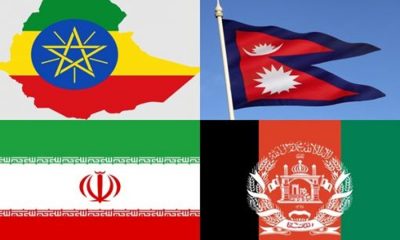
 metro2 days ago
metro2 days agoFour countries that won’t celebrate New Year
-

 metro2 days ago
metro2 days agoNigeria on life support when Tinubu took office – Akpabio
-
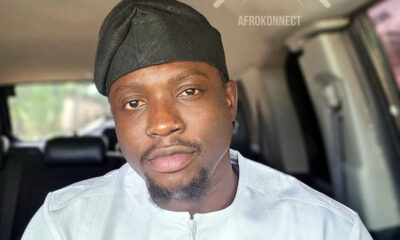
 metro2 days ago
metro2 days agoN180m not missing from my account, it was all a plan – Verydarkman
-
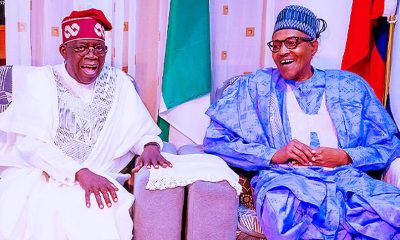
 metro2 days ago
metro2 days agoTinubu reveals Buhari’s role in commencement of Warri refinery operation
-

 Politics2 days ago
Politics2 days agoSeyi Tinubu death threat: Court fixes Jan 6 on Olamide bail application
-

 News2 days ago
News2 days agoCurrency in circulation now N4.8tn – CBN report

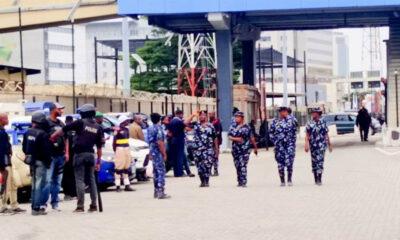



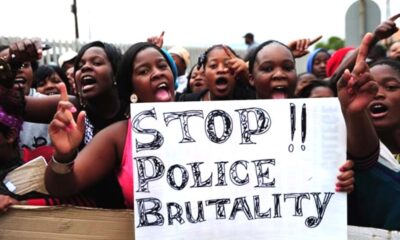

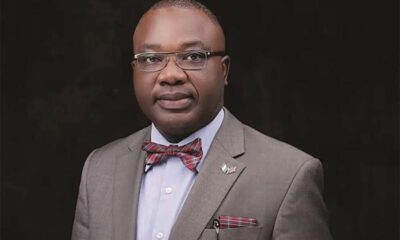

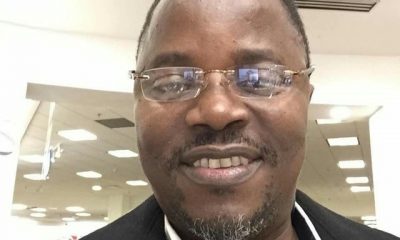




You must be logged in to post a comment Login